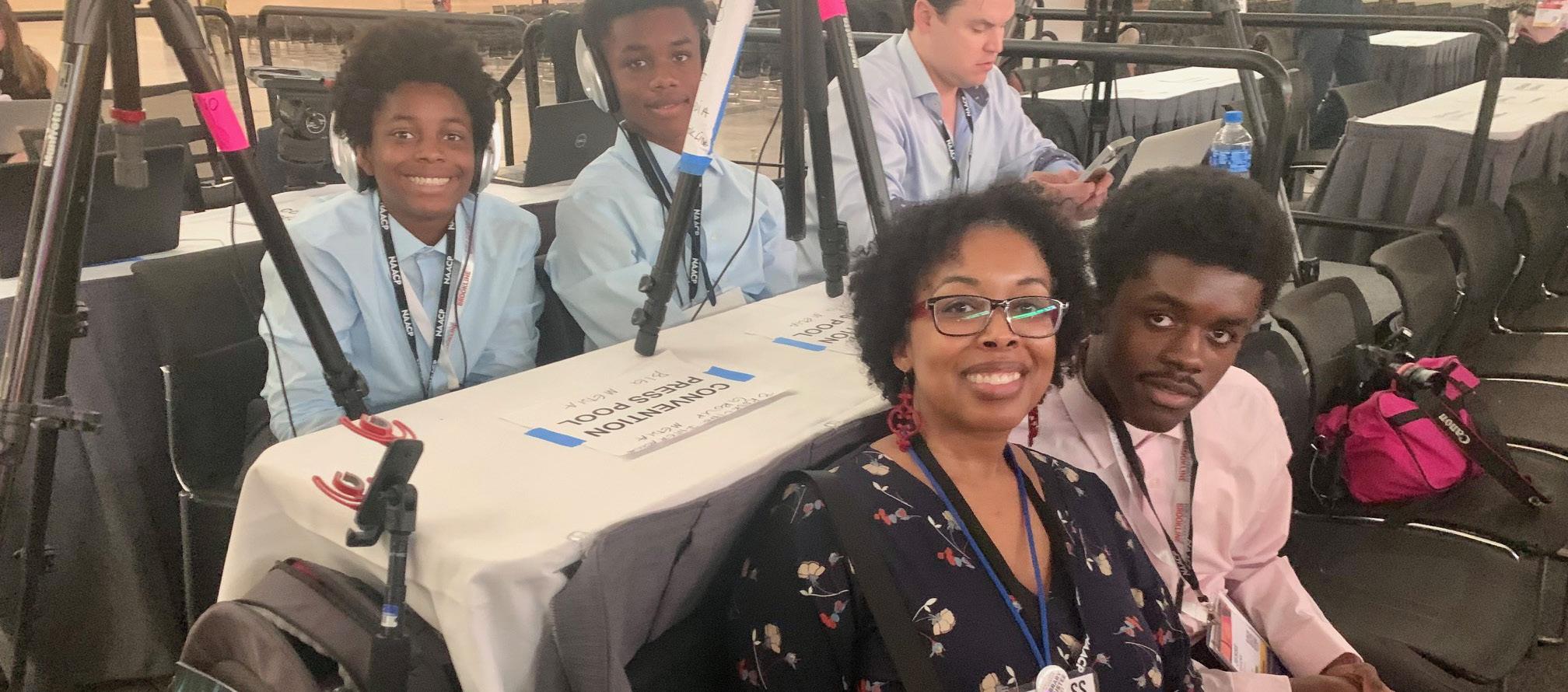
2 minute read
NAACP convo aims for more activism, more votes
By JEANETTE TOOMER Special to the AmNews
On Saturday afternoon, the 114th Convention of the National Association for the Advancement of Colored People (NAACP) meeting at the Boston Convention and Exhibition Center called for more civic engagement and more votes in order “to fight and to win” against the current challenges to civil rights. The Saturday public mass meeting brought together national leaders, including Vice President Kamala Harris, Democratic Rep.Ayanna Pressley (Mass.), Education Secretary Miguel Cardona, and Boston Mayor Michelle Wu, among others.
Harris participated in an interview with Massachusetts Attorney General Andrea Joy Campbell. “We should vote,” the vice president said when asked what we should do to curtail these affronts on civil rights. “Because people voted, seniors do not have to pay more than $2,000 a year on prescription drugs, and states can extend postpartum care coverage to mothers.”
On the other hand, Harris also pointed out that statistics indicate that gun violence is the number one cause of death among children in our country. In many states, anyone can purchase assault weapons. “It gets back to voting. We don’t have people in Congress to pass strict gun control laws,” she said.
Michael Turner, NAACP chair of the Convention Planning Committee, shared some Boston history — the city registered the first chapter of the NAACP. The NAACP protested and campaigned for President Harry Truman to desegregate the armed forces after a brutal violent racist attack on a Black veteran in Boston. On July 26, 1948, Truman integrated the U.S. Armed Forces.
Tanisha Sullivan, president of the Boston chapter, warned members and volunteers that “this is not a time for complacency or fear.”
The city’s mayor, Michelle Wu, credited a “generation of Black leaders” for fighting against racism in immigration. Wu specifically noted the organization’s denouncement of the Chinese Exclusion Act of 1882 (not repealed until 1943). She opined that Chinese immigrants and citizens are “indebted to the NAACP.” More recently, in 2020, the NAACP “issued a joint urgent call to action against racism and discrimination against Asian Americans related to the 2019 coronavirus.” (The Crisis, p 3, 2020).
Education Secretary Miguel Cardona encouraged support of Historically Black Colleges and Universities (HBCUs) with data to back up his claim. He reported that 40% of Black engineers, 50% of Black doctors, and 80% of Black judges have graduated from HBCUs. In light of the Supreme Court’s decision to end affirmative action, HBCUs have promised to continue the work of diversity and equity in higher education. Cardona said that the Biden administration has already approved $16 billion in student loan forgiveness.
The Afro-Academic, Cultural, Technological and Scientific Olympics (ACT-SO), the youth enrichment program of the NAACP, also awarded annual prizes and scholarships to its members. They competed for scholarships in 32 disciplines. Among the winners was New Yorker O’Ryan Douglass, who earned a silver medal in medicine and health. Sadie Carol from Milton won the bronze prize in music competition. Many of the students’ works in art, photography, and science projects were also on display in the “Glow Garden” in the Exhibit Hall.
Among the workshops offered this weekend was “Sharing a Just Technological Future: Exploring AI, Evidence-Based Science Policy and Equity.” Two panelists described how AI can be a resourceful tool for young people, educators, community-based organizations, corporations, and government services. In fact, several government offices are already using AI. Young people are teaching people how to use question and search patterns. They suggest that not-for-profits can write 20 grants instead of two using AI technology.
The Art and Activism panel included the work of artist Nikkolas Smith. His paintings feature art and wording that reflects racism in today’s society. He was featured on NPR and has a book coming out soon on his most recent art/ activism.
This year’s NAACP convention theme was “thriving together,” and the leaders, exhibits, speeches, youth, workshops, and thousands of members in attendance embraced this theme to not just fight, but to win.










